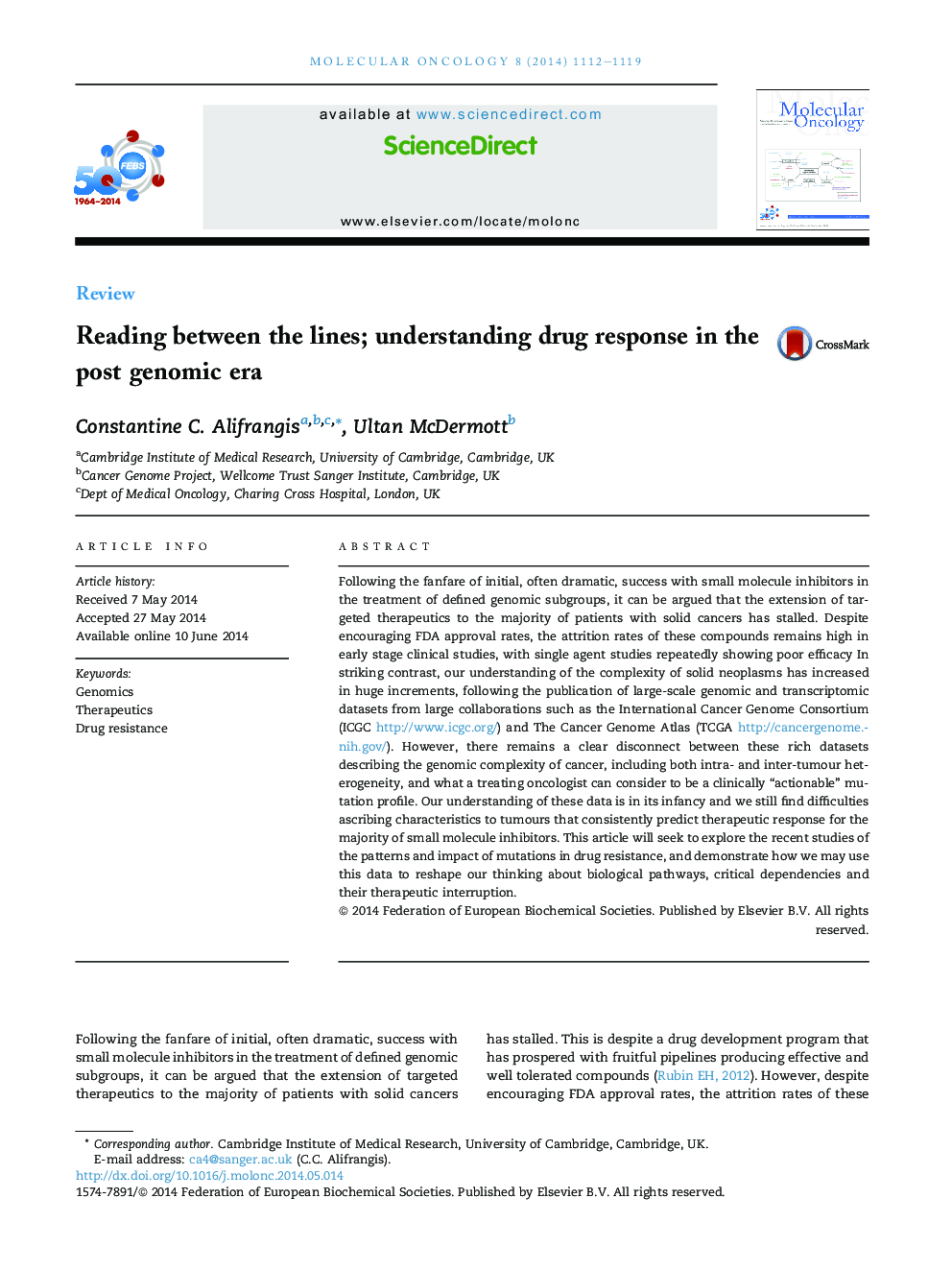| Article ID | Journal | Published Year | Pages | File Type |
|---|---|---|---|---|
| 2145570 | Molecular Oncology | 2014 | 8 Pages |
•Genomic stratification has identified therapeutic biomarkers for some solid tumours.•Resistance to targeted therapies is multifactorial and context specific.•We discuss an overview of recently described clinical resistance mechanisms.•We highlight recent advances in understanding a taxonomy of drug resistance.•We discuss the integration of functional and genomic data to overcome drug resistance.
Following the fanfare of initial, often dramatic, success with small molecule inhibitors in the treatment of defined genomic subgroups, it can be argued that the extension of targeted therapeutics to the majority of patients with solid cancers has stalled. Despite encouraging FDA approval rates, the attrition rates of these compounds remains high in early stage clinical studies, with single agent studies repeatedly showing poor efficacy In striking contrast, our understanding of the complexity of solid neoplasms has increased in huge increments, following the publication of large-scale genomic and transcriptomic datasets from large collaborations such as the International Cancer Genome Consortium (ICGC http://www.icgc.org/) and The Cancer Genome Atlas (TCGA http://cancergenome.nih.gov/). However, there remains a clear disconnect between these rich datasets describing the genomic complexity of cancer, including both intra- and inter-tumour heterogeneity, and what a treating oncologist can consider to be a clinically “actionable” mutation profile. Our understanding of these data is in its infancy and we still find difficulties ascribing characteristics to tumours that consistently predict therapeutic response for the majority of small molecule inhibitors. This article will seek to explore the recent studies of the patterns and impact of mutations in drug resistance, and demonstrate how we may use this data to reshape our thinking about biological pathways, critical dependencies and their therapeutic interruption.
